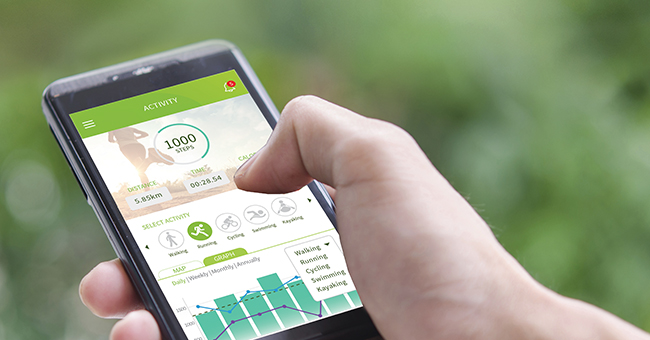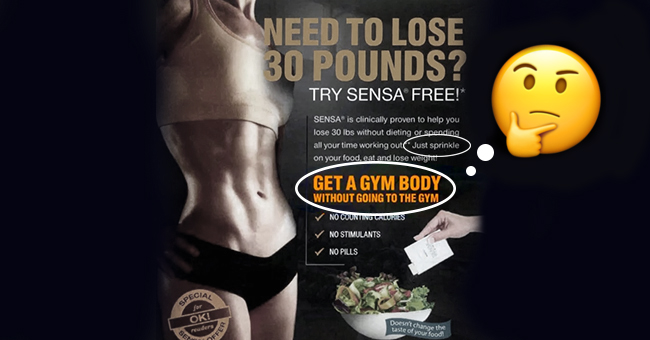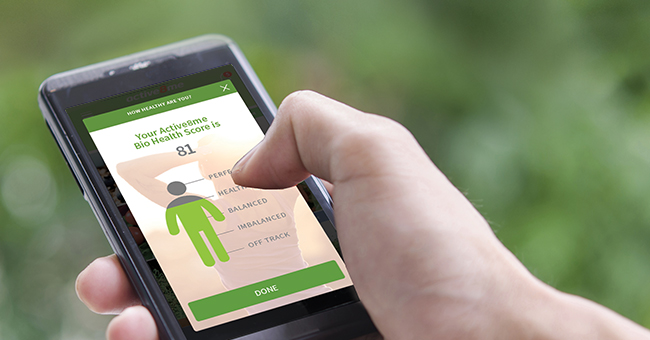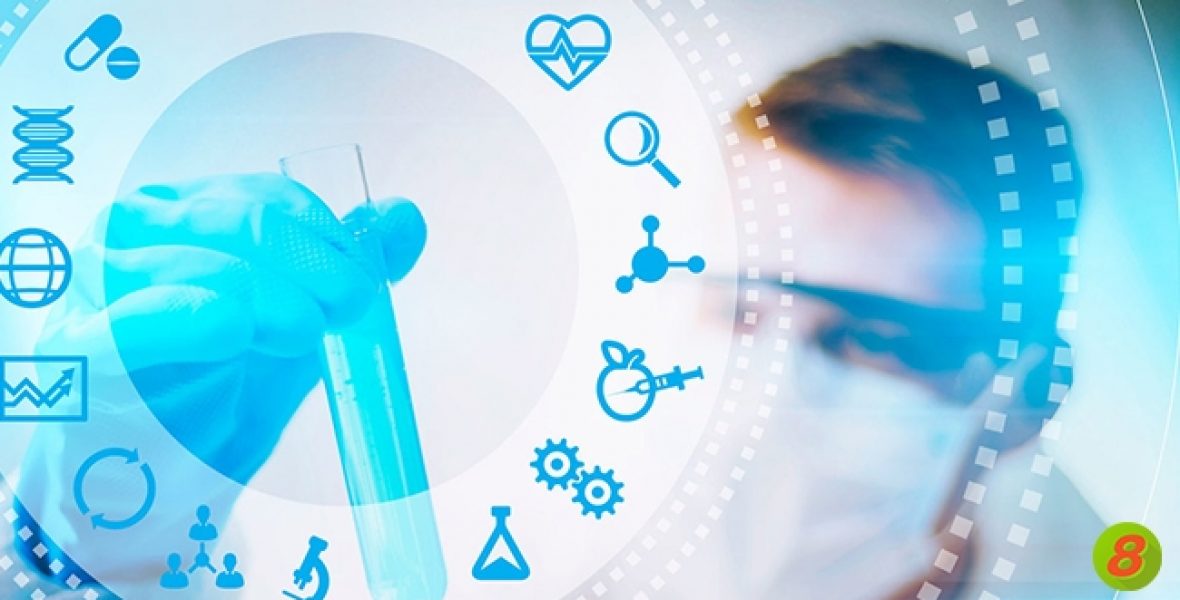Ethics, in some cases, have stopped science, limited medical progression and saved us from ourselves. Bioethics, on the other hand, is based on human values at the time of debate and as human values evolve, so too must ethics be adjusted.
For example, as a society, we used to fear ‘big brother’. But now it’s commonplace for Google to locate you anywhere in the world and Facebook to put ads in front of you based on your browser history. In this instant gratification age, especially when it comes to information, health is no different. We all seem to want the magic pill that will fix everything. We want wearable technology with immediate feedback and insights. Ultimately, we want health, but at what cost?
We have broken the health tech ethics debate into three broad topics to focus on the factors we believe most in need of discussion. Read all the way through or skip to the part that interests you most. Feel free to share your thoughts in the comments.
-
Health Tech Ethics Part 1: Privacy
-
Health Tech Ethics Part 2: Everyone’s an Expert These Days
-
Health Tech Ethics Part 3: Who’s responsible for health?
The collection of biometric data through health tech devices is often left in the hands of the corporates who manufacture and supply the technology. Think about your smartwatch or computer simulated cycling app – they are linked to accounts that collect, collate and analyze your data. Then they use this data to report on engagement, further investments and broad biometric parameters.
It is often incorrectly assumed that this data is kept private and confidential. Names and specific details may be omitted but this aggregated ‘health data’ is collected and manipulated for a variety of purposes, often to do with targeted marketing and money making. More recently, companies are entering ‘research’ agreements for the use of this data to measure large scale health issues, throwing more fuel to the health tech ethics fire.
And…
You only need to recall Facebook co-founder and CEO Mark Zuckerberg testifying in front of US Congress regarding personal data privacy issues to know that this is a serious and current topic. There is a key factor with personal health data making privacy paramount – the inherent information about our health that is permanent. Things like our DNA and blood type don’t change, yet they are highly valuable data commodities. That makes ethics around the collection and use of health data even more important.
How to use health tech data wisely?

Even if you believe privacy is important and valuable, you may still agree there are ways in which collection of vast amounts of data can help promote the ‘common good’. For example, tracing the spread of diseases, gaining perspective on human behaviour around health and stress or tracking disease risk markers.
A tech-based health and fitness industry has a unique opportunity to positively impact lives by improving health, quality of life and longevity for individuals, families, workplaces and communities. But there are some lingering concerns and unintended consequences that need to be addressed when integrating health tech into our lives. Namely content, responsibility, and privacy.
At Active8me we take these ethical issues very seriously. We believe:
In informed choice and consent.
In user and patient confidentiality.
That health data can be used for personal improvement.
That this can co-exist with the use of anonymized data where the aim is to improve health outcomes.
What about you?
As an individual, how much of your health data would you be willing to reveal? Or, as the head of a corporation how much health data about your employees would be appropriate?
Ethics around health data and privacy is part of a far-reaching discussion. And so it should be! From the age-old debate of the moral slippery slope in medical research to the emergence of collecting personalised health biomarker data.
We need to be talking about it…
Being informed about the collection and use of health data is not only wise, but important. There’s another side to this with the broader ethics of the health, fitness and wellness industry. That is, those touting overnight weight loss, miracle foods, instant abs and magical mindfulness that cures all. Are they acting ethically?
Health tech and ethical content
The internet is awash with health and fitness claims that dilute accurate and researched information. Everyone seems to have an opinion that they pass off as ‘expert’, often with very little formal qualification or any scientific evidence to back it up. You take advice from your doctor because they have studied, learned, practiced and applied their knowledge and understanding based on the rigors of scientific research. The health tech ethics in question here is whether content can or should be regulated?
Opinion is fine. Everyone has one. However, advice whether delivered in person or digitally should be based on qualified professionals and scientific research. Or perhaps it should just be buyer beware?
The new health tech pandemic – Information that does more harm than good
In a study published in Science, researchers found that, at least on Twitter, “Falsehood diffused significantly farther, faster, deeper and more broadly than the truth in all categories of information”. This makes sense if we look at human nature and the way we process information.
We are more likely to trust a friend or family member who ‘shares’ information on social media, especially if we favour their viewpoint. Whether it be true or false. Unfortunately, there is no law or regulation, or in some cases even ‘ethics’ that surrounds the publication of truthful information on social media channels. Where snake-oil style health fixes used to be considered ‘old-wives’ tales that were passed on through families, these same remedies now have the potential to go viral. The real issue is that mis-information can have serious health consequences.
No one is immune, but you can beware
Let’s be honest. We have all done the Dr Google search and focused in on answers to our health issues that we most ‘want’ to fit. Many of us are lured into that click-bait headline of flat abs or 30-day weight loss without changing a thing. So, how then should we discern the ethical from the dangerous information?
It comes down to thinking beyond the quick answer to those who are actually providing the answers. For example, at Active8me we are proud to have incredible experts curating our content.
- Four dual Olympians who have trained, experienced, practiced and are educationally qualified to design our workout programs.
- Dieticians (as opposed to nutritionists – there is a difference!) who are highly qualified in both medical and sports nutrition and who work with recipe developers to create our healthy, balanced and delicious meals.
You should be guided by experts not marketing.
- Avoid quick fixes and scams => 9 Crazy Weight Loss Scams People Fell For this Year

You should choose quality content based on expert advice. Here are some of our examples:
- Active8me Guiding Nutrition Pillars
- Active8me Guiding Exercise Pillars
- 5 Food Myths Busted
- Why Many Women Never Get Toned
What makes you think some health information is more reliable than others?
Health, fitness and wellness are categorically an individual responsibility. Or are they? Let’s take a journey into another area of health tech ethics – who’s responsibility is it?
If you’re an employer, wouldn’t you want to pick the healthiest, most productive employee?
- The one who has the least health risk factors.
- The person who you can see from a health-check has the best bio-vitals and other health parameters.
- Or, the one that health tech AI determines is least likely to get sick or be injured due to their current health and lifestyle? (It doesn’t mean they are always correct, but the possibility it there).
More specifically, for many jobs a certain physicality is required. For example, a baggage handler at an airport. So, passing a ‘medical’ for certain jobs is not a new phenomenon. Workplaces must meet workplace health and safety for their employees. So, why shouldn’t they demand that their employees be in the safest and healthiest condition to do that work?
So, whilst the onus of health is on the individual, is this really an issue of discrimination or practicality and safety? And is it really a breach of privacy to have access to an individual’s health data so these decisions can be made?
The health tech ethics around data raises more questions than answers
If corporates provide a health, fitness and wellness program for their employees (at a cost to the company), who exactly owns the data that comes from its implementation? The liability of employee safety always falls back to the employer, yet the measures they can take to support, and control employee health are determined by the ethics of privacy. More so, in the reality of cost to benefit ratios, how does a corporate employer judge the efficacy of the program they are paying for and providing? And ultimately, how much of that data would individuals be comfortable to disclose considering the potential risk to their employment?

The ethical solution – taking responsibility for health
We take a very pragmatic viewpoint here. The simple answer is, we are all responsible. We believe:
- That individuals own their data.
- User and patient confidentiality are imperative.
- Informed choice and consent are paramount.
This comes back to the current human values we place on the responsibility, accountability, and ownership of data around our individual health.
However, we also believe that health professionals and health tech operators should be aiming to produce scientifically proven and tested products and services in a transparent manner. Governments and workplaces need to regulate the use of health tech for optimal wellness. Corporates are responsible for supporting wellbeing in the workplace, and that means accessing health, fitness and wellness programs such as Active8me which are based in science and backed by real experts.
So, where’s the fine line drawn between health tech and health responsibility?
Firstly, individuals need to be educated and empowered to make decisions about their health that is relevant to their personal, social and economic parameters. The broader health ecosystem needs to provide this. Governments and regulators need to ensure those marketing and spruiking products with ridiculous and unproven claims, are made accountable.
But…
The ultimate responsibility for health comes down to the individual – to sort fact out from fiction. Whether that relates to pharmaceuticals, supplements, nutrition plans or general fitness and health programs.
Secondly, if we want better health outcomes for society then the sharing of data is important. Both personal health data (with user permission) or the use of anonymized data can achieve this. To preface that, health data collection needs to be two-fold. It needs to lead to the progression of both positive health outcomes and uphold the integrity in the collection of data. That is, not just for targeted marketing. In our view, this isn’t theoretical, this is pragmatic.
What are your thoughts?
With the rapidly expanding health tech industry and many start-ups being ‘caught out’ in blurring the lines of business and health tech ethics there needs to be discussion, debate and thought put into how we proceed in this digital age. Let us know your thoughts…
Do you have a stance on health tech ethics?
Do you think that there should be regulations over health information that is published on social media?
Who do you think is ultimately responsible for health tech and health tech regulation?















